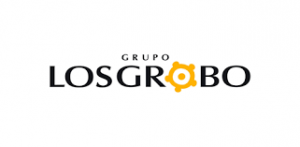Stella Fontes, Valor – International. 8 May 2017,
VALOINT,
Taken from: Valor Economico S.A.
Son of the founder of Biosintética laboratory, Omilton Visconde Junior is known in the pharmaceutical industry for his ability to make money by setting up or buying companies that, after expanding, are sold at high multiples. This rationale guides his new bet, Cellera Farma, which is born in partnership with fund Victoria Capital Partners and has a R$400 million investment plan in four years.
In five or six years, when the annual revenue is around R$500 million, which would put Cellera in the group of medium-sized pharmaceutical companies, the goal is to sell the operation to a US or European laboratory that wants to enter the Brazilian market. Or allowing the exit of the private-equity fund, which now has an 85% stake bought through an IPO.
This was the case with Biosintética, sold by Mr. Visconde Junior in 2005 to Aché for R$600 million, and Segmenta, which became the country’s largest manufacturer of saline solution under his command and ended up in the hands of Eurofarma in 2010, for R$450 million. The businessman says that, after the sale of Biosintética, he was subject to a quarantine in the industry that did not cover the hospital market – and Aché had not taken in the package a parenteral-solution plant, used in hospitals, from which Segmenta was born.
Since then, Mr. Visconde Junior has participated in other deals. In 2011, he sold Prev Saúde, which manages drug benefits, to Orizon (which today has Cielo, Bradesco Seguros and Cassi as shareholders). In the following year, he joined Netshoes’s founder Marcio Kumruiam at Netfarma, the country’s largest online pharmacy, in which he owns a 70% slice – Mr. Kumruiam sold his stake in 2014.
In addition to maintaining this stake, Mr. Visconde Junior has established Mip Brasil Farma, which operates in the over-the-counter (OTC) drug market, and will now be incorporated into Cellera Farma. The new Brazilian pharmaceutical company will be headed by Nelson Libbos, an executive with 45 years of experience in the industry and stints as president at laboratories such as Hoescht, Aventis Farma, Farmasa and Teva Farmacêutica. Partner of Mr. Visconde Junior in other businesses and occasions, Mr. Libbos is a partner of Netfarma and works a consultant in the industry.
It’s Mr. Libbos who tells how Cellera Farma was born and what is the long-term strategy. “We already have a good production platform and now are hiring the team in the market,” he says, adding that the entire board is already in place. On the production platform, just over a month ago, Victoria Capital Partners and Mr. Visconde Junior completed the purchase of Canadian group Valeant’s generic and similar-drug plant in Indaiatuba, São Paulo, for an undisclosed amount.
The acquisition includes the R$400 million investment package in four years, which includes at least one more purchase, Mip Brasil Farma, which belongs to Mr. Visconde Junior. With the merger of Mip into Cellera, for an amount not yet defined, Mr. Visconde Junior’s 15% stake in Cellera will increase.
The plant’s acquisition was already approved by the Administrative Council for Economic Defense (Cade) and also involved the Caladryl product line, acquired by Valeant from Johnson & Johnson in 2012. Mr. Libbos says the brand will be reformulated and the line will grow, also focused on solar protection.
In addition, Cellera is born with an outsourcing-production contract for the Canadian pharmaceutical company for seven years. Today, the plant’s capacity utilization rate is only 20%, which gives a large margin to expand the portfolio.
Generics and similar drugs are not the focus of the company’s strategy, which plans to launch a probiotic next year and already negotiates brand licenses and formulas with foreign laboratories that do not yet operate in the country. The areas of dermatology, neuroscience and OTC (prescription drugs) are on radar.
Mr. Libbos explains that the contact with Valeant regarding the Delta Therapeutic Institute, the Indaiatuba operation official name, began just over two years ago, when the Canadians refused a first proposal jointly presented by the fund and Mr. Visconde Junior. About a year ago, Valeant itself sought out potential buyers, and after a new due diligence, the deal was closed.
With debt of nearly $30 billion, Valeant put a number of assets in non-strategic markets for sale, and during a conference call in February, chief Executive Joe Papa cited ongoing divestitures in Brazil, Indonesia and Vietnam.
Victoria Capital Partners, in turn, has in its investment portfolio, among others, the Argentine group Los Grobo, Brazil’s Elemidia, Chilean gym chain Energy and is the controlling shareholder of Oncoclínicas, the largest private-sector network of oncology centers in Latin America, whose revenues should reach nearly R$1 billion this year.
“Cellera will be a big business platform in your area,” says Mr. Visconde Junior. It complements his investment portfolio a 30% stake in the Doutor Agora outpatient network.
Valor Economico S.A.
 – Aren’t you afraid of an unfavorable market scenario as a consequence of Trump’s triumph?
– Aren’t you afraid of an unfavorable market scenario as a consequence of Trump’s triumph?